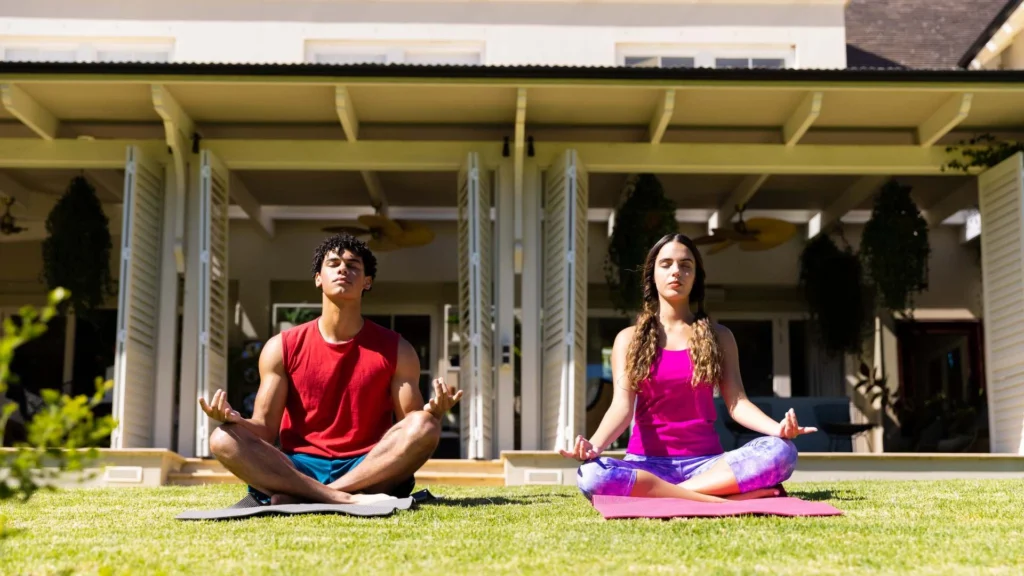College life is exciting, but stress can build up due to exams, assignments, and finances. Self-care options, such as therapy, spa days, or fancy wellness apps, appear far out of reach. But the good news is that it doesn’t have to cost much to manage stress.
You don’t need pricey therapy sessions, trendy wellness apps, or luxurious self-care products to feel better. Fortunately, most stress-relief techniques are free, easy, and can be incorporated into daily life. Whether it’s taking a five-minute meditation break, stepping outside for a moment, or cranking your favorite jam, small habits can go a long way.
This guide is on managing stress on a budget. From utilizing free campus resources to establishing an inexpensive self-care routine, you’ll learn actionable ways to manage stress and keep calm even when college life gets chaotic.
Why Stress Management is Crucial for Students
College brings pressure from many sides. When stress builds up, it can hurt grades, health, and happiness. But staying calm doesn’t have to be costly. Here are key reasons to manage stress.
Better Focus
Having a clear state of mind aids in understanding lectures, completing assignments, and studying. Stress hinders concentration and usually results in procrastination. Even simple relaxation techniques, such as deep breathing exercises or brief mental distractions, can increase attention and enhance academic performance.
Improves Memory
High stress can hurt memory, making it hard to remember details during exams. When students manage stress through mindfulness or exercise, their brains work better. A relaxed mind takes in information faster, aiding studying and class participation.
Good Mental Health
Ongoing stress drains energy and can make tasks feel heavy. It can lead to low motivation for studying or completing assignments. Relaxing through hobbies or exercise can boost energy, helping students stay productive and focused.
Avoid Health Problems
Long-term stress can harm the mind and body. It can lead to headaches, digestive problems, sleep difficulties, and a compromised immune system. Things like getting outside, eating healthy, and drinking water keep students well.
Improves Sleep Quality
Stress makes it hard to fall asleep and stay asleep, leading to feeling tired and unfocused. Not sleeping well makes stress worse, so this vicious cycle is difficult to break.” So, calming close to bedtime, such as listening to music or journaling, will help improve sleep.
Make Relationships Stronger
Stress can cause people to be irritable and withdraw from one another, which impacts friendships. When students cope with stress, they are more connected and communicate better. It prevents social overload while still allowing for fun interactions.
Check this out: Healthy Eating on a Budget
Top Free or Low-Cost Stress Relief Techniques
College students often face stress, but managing it doesn’t need to cost a lot. Here are some techniques:
Meditation and Breathing Exercises
Concentrating on your breath for a few minutes can settle your mind. Headspace and Insight Timer are free apps with guided meditations. Even closing your eyes and taking a few moments to breathe deeply can be a stress buster.
Exercise and Movement
Moving your body helps release tension and boost your mood. To feel better, you can try yoga or walk around campus. Dancing in your room or following free workout videos is a great way to stay in shape while having fun.
Listening to Music and Podcasts
Music is crucial in a way to change your mood quickly. Make a playlist of songs that lift your spirit or help you relax. They are perfect distractions, be it a comedy or motivational podcast or perhaps something you are already hooked on.
Spending Time in Nature
Taking a walk in fresh air and sitting near green areas is always good for your mental health. You can sit outside, walk, or even study in the park. Being outdoors helps you calm down and reduces anxiety.
Creative Outlets
Try to be more creative, as it can lead to greater relaxation. You can try illustrating, painting, writing, or even baking. Expressing yourself through hobbies in prolotherapy can be beneficial for relieving stress.
Also Read: Best Apps for Finding Student Discounts & Saving Big in College
How to Create a Stress-Relief Routine
Building up stress seems easy, but there are ways to deal with it. It is worth incorporating small, simple habits into everyday life. A few minutes of self-care a day can calm your muscles, improve concentration, and maintain balance. Here are some easy tips on how to do stress-relief routines.
Set Aside 10-15 Minutes Daily
Setting aside 10-15 minutes a day can significantly improve your mental well-being. For example, take a break from your schoolwork and social media. That small timeout can reset your mind baseline and help you deal with stress.
Find a Calming Activity
People have different ways of relaxing. Some people like writing, others prefer quiet, yoga, meditation, or drawing. Try different things to see what is most calming to you. The objective is to assist you in decelerating and breathing.
Prioritize Good Sleep
Sleep is a form of stress management. An absence of it can lead to fear and distraction. Establish a bedtime and wake time, minimize screens before sleep, and cozy up your space to enhance your resting period.
Limit Screen Time Before Bed
Avoid scrolling on your phone at night. It can keep you awake and increase stress. Instead, read a book, listen to soothing music, or meditate to calm your mind before bed.
Stay Hydrated
What you put in your body can dictate how you feel. Dehydration and poor nutrition can amplify stress. Carry a water bottle with you, and try to eat balanced meals that will provide fuel for your brain and body.

Leveraging Campus Resources for Stress Management
Your college life doesn’t have to be as stressful as it sounds. From wellness centers to fitness classes, your campus offers many free resources to help not only with your physical appearance but your mental health as well. Here are some resources that will help you:
University Wellness Centers
Most colleges have wellness centers offering free therapy, mental health workshops, and quiet areas. The centers provide personalized counseling or a serene environment for calming thoughts that encourage academic achievement while relieving stress.
On-Campus Yoga & Fitness Classes
Many universities provide free yoga, meditation, and fitness classes for students. These classes help reduce stress, boost focus, and raise energy levels.
Support Groups
Talking to others who understand your struggles can be very helpful. Colleges often have student-led support groups. You can share your experiences and pick up new coping strategies. These free groups are a great way to meet others dealing with similar challenges.
Quiet Study & Relaxation Spaces
Most campuses have quiet study or relaxation areas. These spaces allow you to avoid distractions and focus on your work. A nearby library nook or a student lounge can help; it is easier to focus and find calm in a space dedicated to studying.
Student-Led Wellness Organizations
Wellness and mental health clubs are common among college students. These groups arrange events, such as meditation classes and stress relief activities. Participation will help you expand your social circle and meet new friends.
Career and Academic Counseling
In most cases, students stress over their grades, internships, or future jobs. Campus career centers and academic advisors give free assistance with coursework, resumes, and job searches. A counselor’s intervention may help reduce anxiety concerning academic and career issues.
DIY Stress-Relief Activities
Being in college can be difficult, and relieving that stress doesn’t have to be difficult or expensive. Here are a few simple, low-cost ways to relax and improve your mood:
Take a Walk Outside
It clears your mind and eases stress. Taking a short walk around campus, a neighborhood or a park near you can be a mood booster. Fresh air and sunlight can help lift your mood considerably.
Have a DIY Spa Night
Create a spa night at home with things you already have. Try a face mask, drink herbal tea, and listen to peaceful music. Relax in a warm shower or bath with essential oils that help to melt away stress and, in turn, refresh you.
Try Journaling for Clarity
Writing your thoughts can help you sort through emotions and reduce stress. Try using a notes app or even a traditional notebook. Listing three things you are grateful for each day can also dramatically uplift your spirits.
Cook or Bake Something Simple
Making a meal or baking can be comforting. A simple grilled cheese or batch of cookies can brighten your day. Cooking allows you to focus on the moment and enjoy creating something tasty.
Stretch or Do Light Yoga
Just a few minutes of stretching or basic yoga can relax your body and mind. There is no need for a fancy class; find a free online video or follow some easy stretches. Stretching helps release tension, especially after long study sessions.
Read: Budget-Friendly Fashion Tips for Students
Key Takeaways & Next Steps
Mental health is as important as being on keeping your classes. Stress is part of college life, but it doesn’t have to overshadow it. Simple habits such as exercising, journaling, or listening to music, can have a profound impact. And the best part of it all is that stress relief does not have to come at a price.
Blitz eases the life of students, providing them with instant cash advances up to $99, no credit checks, and no hidden fees. Blitz comes to your help when unanticipated expenses create additional stress. Download the app here.




